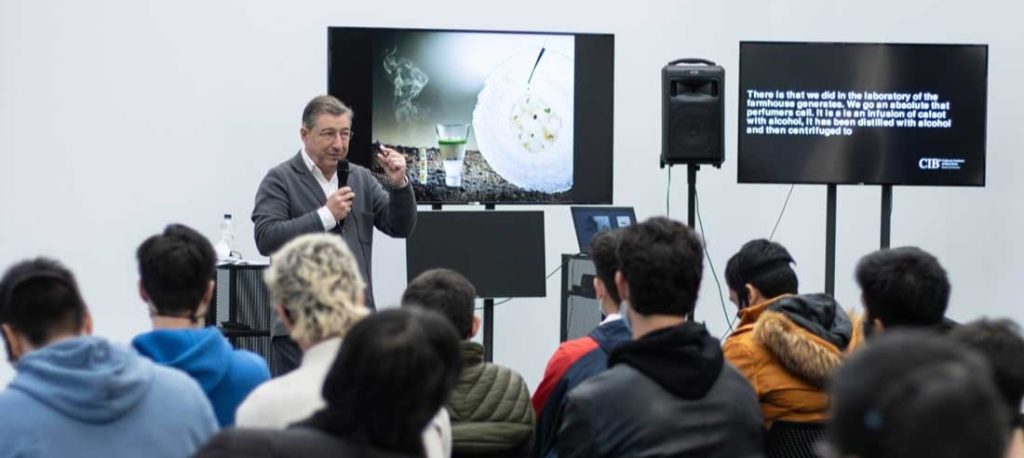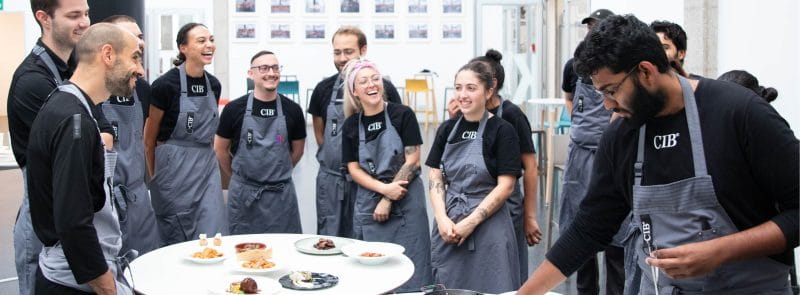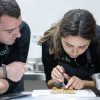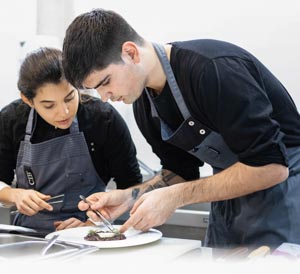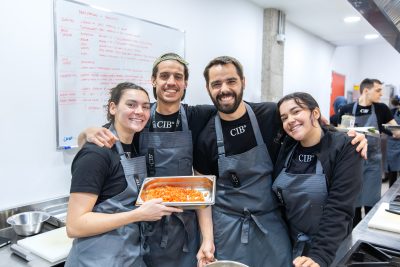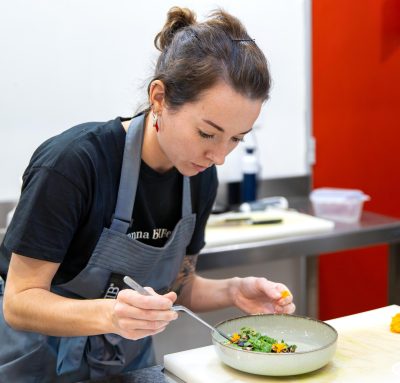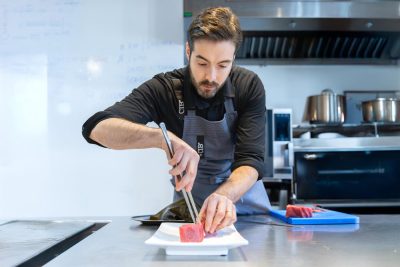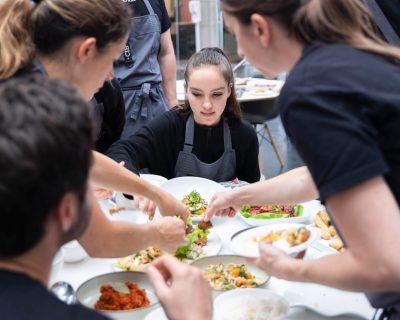Choosing a profession is one of the decisions that generates more doubts among young people, precisely because they must choose a direction towards which to focus very soon and they are afraid of being wrong. Young people often do not know if what motivates them at that moment will satisfy them for life or will be something temporary. The gastronomy sector is not exempt from this circumstance, since being a chef is a demanding profession both in terms of schedules and in the personal involvement that it demands.
Even so, the chef of the 21st century has the ability to concentrate many of the skills and attitudes necessary in today’s world of work, and it is, thanks to that, one of the most interesting professions of the moment if the aspiring chef manages to prepare properly for it.
Becoming a chef is a lever for personal development and it will serve you for the rest of your professional future, whether you are linked to the gastronomic sector or any other sector to which you decide to dedicate yourself.
In recent years, chefs have gone from being professionals who offered a service and went completely unnoticed, to becoming the center of attention of the media, to being useful in more and more areas of society and in some cases even to becoming in public figures appreciated by all.
The profession has been transformed in many ways, it is no longer enough to know how to cook and cooks need to acquire a set of new social and creative skills to be successful professionally.
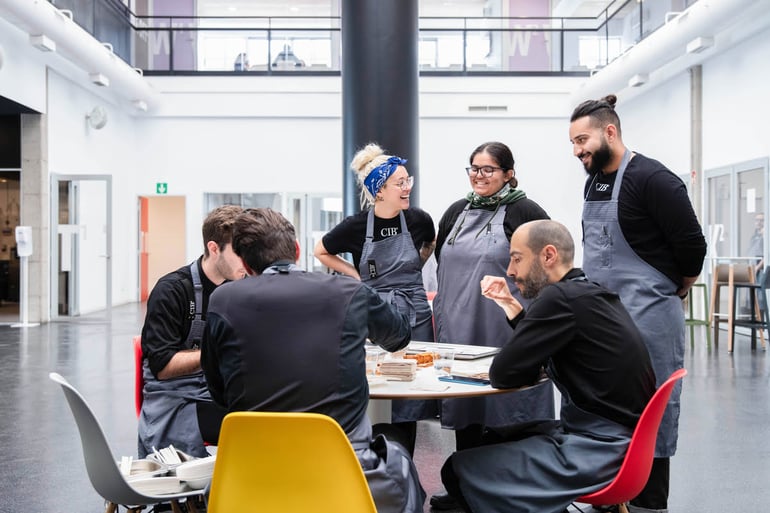
Studying is developing yourself
Traditional training was designed in the context of the Industrial Revolution to generate efficient workers to meet the new market needs that appeared with new technical developments.
Today, the context has radically changed and the ease of access to knowledge provided by new technologies means that many of our questions are answered instantly through a mobile device and, therefore, training can also deal with the development of skills and personal attitudes that had not been taken into account until now, but that are increasingly necessary.
Leading kitchens generating trust and respect
Traditionally, workers in the kitchen have been led by an almost military discipline. The screams in a kitchen have been seen as necessary and authority as indisputable. Recently, a group of chefs such as Joan Roca or Andoni Luis Aduriz have appeared, and they understand that encouraging creativity in a teamwork is key to having a motivated, cohesive and innovative team. They show that a different leadership is possible based on gaining recognition through mutual respect between employees, and that creativity should be promoted with freedom.
At the Culinary Institute of Barcelona we think that it is vital to train our students in skills such as leadership, teamwork or decision-making, since in this way we train people prepared to take on challenges, build relationships of trust with their collaborators and take initiative to improve your work environment. Thus, we facilitate the personal empowerment of our students, making them go from being a workforce that is limited to replicating recipes to becoming professionals capable of being useful in the creative processes and the evolution of their jobs.
Creativity, engine of innovation
In an uncertain and constantly changing world like the current one, rethinking the way we do things and having an open mind to change is vital to know how to adapt to new times and not be left behind. Creativity has become very important in the world of work and business.
Tools that come from the world of graphic and industrial design, such as Design Thinking, have made it possible to generate processes to detect the needs and concerns of the client, and then design and prototype a set of resolution proposals based on creative tools.
Many restaurants are already dedicating part of their efforts to organizing creativity bootcamps in which new gastronomic proposals are prepared based on trial and error and joint work.
The CIB has understood that to respond to these needs of the labor market ,it is necessary to give back to their students the right to make mistakes, understanding that stigmatizing errors kills creativity, and also establishing mechanisms to control these errors so that they can learn effectively from them. Effort should not be separated from enjoyment, and the best way to produce talent and originality is by allowing the objectives to be reached through freedom of action.
Social responsibility in the kitchen
Creativity linked to social responsibility allows the kitchen to make important contributions to the habits and perspective of societies.
Innovating in the kitchen is often synonymous with claiming the protection of the environment, the recovery and protection of species, local cuisine or a healthy diet. Haute cuisine asks chefs to have a constant interest in training, researching the issues that concern them and finding a way to link these ideas to their kitchen.
Training should promote this multidisciplinary perspective that facilitates the interconnection of people and sectors through new technologies.
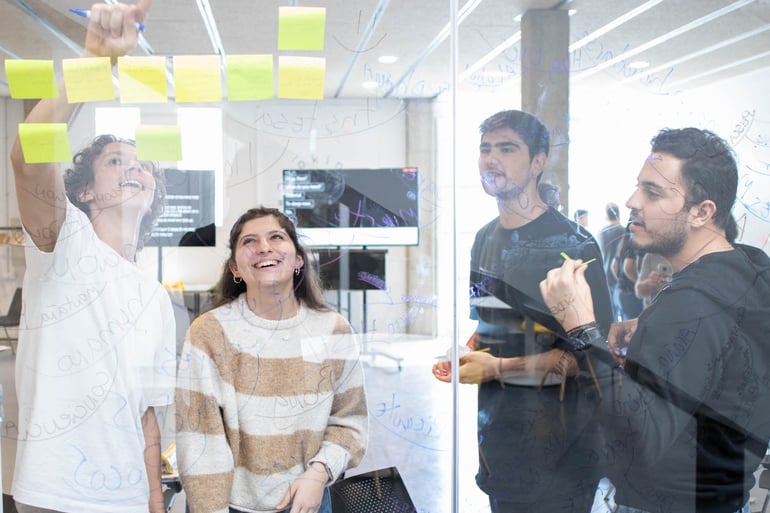
Cooking as a passion for knowledge
A chef who knows how to document himself and how to express himself to the public, will be able to access recognition more easily and will have skills that will help him to be closer to success in all his professional and personal projects. There is a lot of knowledge about other disciplines such as art, humanities or science that will serve to enrich your gastronomic proposal and your discourse about cooking. All these skills that are essential for the gastronomy of the 21st century give the chef an ability to function in the world that will accompany him throughout his life, whether he continues to dedicate himself to the kitchen or undertake other work or personal paths.
Many chefs have come to dedicate themselves to the kitchen professionally by chance or by obligation and have become passionate about a world that had always been there but had not paid enough attention to it. The kitchen is omnipresent, we all have to eat but not all of us stop to think with enough interest about everything that cooking involves. The kitchen is one of the most intuitive entry doors to creativity because we all have a greater or lesser space in our mind about the product, the techniques, or the currents of modern and traditional cuisine. We just have to cultivate a certain look that allows us to be creative and play with these elements. At the CIB we constantly seek to promote this attentive look at the world around us and once the students internalize it, it never leaves them each time they practice it in more aspects of their lives.
Studying to be a chef today should be synonymous with developing skills such as leadership, communication, teamwork or creativity, skills that are useful in any profession. Currently, studying to be a chef is a lever for personal growth.

